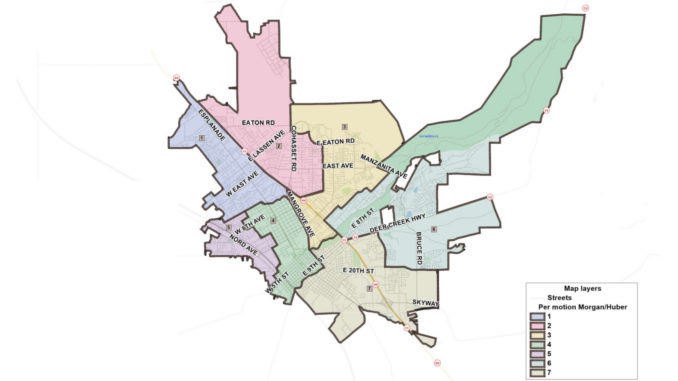

A note on this feature: The candidates’ answers have been minimally edited, mainly for grammar and punctuation. This is an extended version of the Q&A that appeared in the Oct. 8 print edition.
Seats for Chico city council districts 1, 3, 5 and 7 are on the 2020 ballot (seats 2, 4 and 6 open up in 2022). A map of districts can be found here.
Candidates by district:
• District 1. Sean Morgan (incumbent), Curtis Pahlka
• District 3. Steven Breedlove, Ann Schwab (incumbent), Kami Denlay
• District 5. Andre Coolidge, Lauren Kohler, Randall Stone (incumbent)
• District 7. Rich Ober, Deepika Tandon
How long have you lived in your district? What do you believe is the chief concern of its constituents?
Sean Morgan: I have lived in District 1 for 35 of the 45 years I have lived in Chico. The main concern of D1 constituents (as they tell it to me) is safety for families and seniors.
Curtis Pahlka: In 30 years of living in Chico, I think I’ve lived in every district. I have lived in District 1 for about eight years total. The concerns are diverse, with younger folks seemingly mostly concerned with homelessness and older folks concerned with people in our community refusing to abide by public health requirements.
Steven Breedlove: I bought a house in northeast Chico five years ago. The folks I’ve talked to while canvassing want to get unhoused residents into stable and humane accommodations. My plan is sanctioned camps, crisis intervention services and expanding addiction recovery and social supports for safe and healthy communities.
Kami Denlay: District 3 has been my home for six years now, and my childhood home sits two blocks outside the district. While District 3 is home to many of Chico’s schools, stunning Verbena Fields, and borders both lower and upper Bidwell Park, I believe we face many public safety concerns.
Ann Schwab: I’ve called District 3 home for 19 years. In meeting with my neighbors in the district, I know they share my concerns with economic growth to fund neighborhood safety. We recognize the need for economic growth to help fund badly needed improvements to parks and roads, and funding for public safety to ensure neighborhood safety.
Andrew Coolidge: I have been a resident of District 5 for 15 years. In speaking with a great number of voters in District 5, homelessness, public safety and roads are the top three issues.
Lauren Kohler: I’ve lived in my district for nearly eight years. The main concerns that I’ve heard are the safety of the roads and the amount of streets with inadequate lighting. Citywide, people are worried about homelessness and our lack of affordable housing, and making sure that we face the challenges of COVID-19 safely.
Randall Stone: My wife, Krista, and I met, courted and have lived in District 5 for a noncontiguous eight of 27 years in Chico. Housing and homelessness unquestionably is the greatest concern, followed closely by public safety and syringe cleanup, and finally tenant protections in this unstable housing market.
Rich Ober: Some of the concerns of the people of D7 are unique to their specific neighborhoods (the results of annexation in Chapman; the development of the Diamond Match property in Barber, etc.). Districtwide concerns include improvements to the Park Avenue commercial corridor, safe parks, homelessness, renters’ rights and housing.
Deepika Tandon: I have lived in Barber neighborhood of District 7 since 2007. My business is also located in the Barber neighborhood. Vandalism, theft and leaving trash behind by the transients in the district are some of the main concerns.
What would be your No. 1 priority for the City Council? Why? And how would you accomplish it?
Morgan: Solvency and public safety. Maintain emphasis on fiscal discipline while not gutting public safety departments to fund feel-good initiatives. This was my goal in my first election, and it worked well for years.
Pahlka: We need to address the housing gap in our community. We haven’t built in balance in the past, and we are dealing with a severe lack of housing that working families can afford. It’s going to take collaboration and political concessions to do it, but if council can move away from partisanship, it can be done.
Breedlove: My top priority is housing. We need to get unhoused folks into camps with services and infrastructure, build small affordable units, ensure no one is evicted because of COVID and ensure tenants have rights. We do it through putting working and poor people before profit and police pensions.
Denlay: We must preserve Chico’s quality of life while ensuring our neighborhoods are safe. This is fundamental to keeping Chico the special community it’s known as. We must fight to keep our parks clean, protect our waterways and offer real solutions to our growing homeless problem.
Schwab: We have one-time resources to invest in a navigation center to provide sheltering for people camping in Bidwell Park and creekside greenways. Through a multifaceted, community- supported approach, the city must take the lead with nonprofit organizations and county personnel to provide pathways to housing and reverse this degradation to our open spaces.
Coolidge: Dozens of items must move forward on the council immediately. From housing issues to crime issues, cleaning up the park to improving bicycle lanes, public evacuation plans to solar energy plans for the future, tree plantings to public safety—all must be brought forward simultaneously.
Kohler: My first priority would be to mobilize an emergency response to our shelter crisis. Chico issued a declaration of shelter emergency two years ago, and we have not increased affordable housing availability to meet our needs. I will support the creation of sanctioned campgrounds, safe parking lots and shelter beds.
Stone: Housing affordability. If businesses are not able to house their employees, or endure the disruption on productivity because housing is not affordable, many of the benefits of Chico remain moot. Renter protections to protect against market disruptions. Developers have not met the affordability crisis and Chico should implement an inclusionary zoning ordinance.
Ober: I have many, but my top two are:
• a green economic recovery that keeps people safe and healthy—we need to incentivize and grow new entrepreneurial sustainable industry and jobs while supporting our local home-grown businesses;
• workable solutions to homelessness based on data—I’ve called for 300 new shelter beds, a city-sanctioned campground and completion of Simplicity Village.
Tandon: It is difficult to pinpoint one concern. Issues are all interconnected. Dealing with the unhoused population is definitely a priority; it’s not humane to let people live on streets and parks. We need to make sure everyone feels safe in the city. Once the crime rate is lowered, the economy would revive, and people can enjoy our downtown and parks.
Given the fiscal impact of the COVID-19 pandemic on the local economy, what more should the city do to support local businesses and residents and to address potential shortfalls in the budget?
Morgan: Promote education of COVID-safe operations and stop threatening businesses with judicial intervention for minor infractions. Economic activity is the only thing that will fill potential budget shortfalls. People need to be working; businesses need a healthy community in which to thrive.
Pahlka: I like many of the measures that council is already taking, but the fact remains that if we continue to undermine public health guidelines, this economic impact is going to continue much longer than it could/should have. Responsible budget cuts and revenue generation are going to be necessary, but the sooner we stop the spread of COVID, the sooner we can all get back to business.
Breedlove: Crushing poverty leaves little disposable income to spend locally; we must control housing costs. Creating a local-food economy and a public bank would be game changing. For new revenues, we need a gross-receipts tax that protects small business while capturing money siphoned out of our economy through multinationals.
Denlay: While we need to be safe and cautious when it comes to COVID, the fact is many businesses are suffering. We need to find ways to promote local businesses and offer community members the means to engage with them. We must listen to our local business owners to find new and innovative ways to reopen our economy responsibly.
Schwab: Through award-winning Team Chico, we can help Chico businesses be successful by being responsive to their needs; and by applying new revenues to build infrastructure that supports business. The city needs to continue conservative revenue projections and live within our means. We must remain vigilant and pivot quickly to respond to downturns.
Coolidge: A defined local plan should have been established in March. Chico was very late to move restaurants outside, address senior issues related to the crisis or assist families in any way. Budget concerns have been largely ignored.
Kohler: I will make sure that our local businesses have the tools to be open safely, ensuring strict adherence to public health guidelines. The more strictly we follow guidelines, the sooner we will be able to open. We can’t sacrifice our most vulnerable populations for the sake of returning to normal.
Stone: Providing every feasible alternative to support local businesses, such as the parklets I proposed and deferral of fees. But it also means protecting the community and public safety by ensuring businesses are adhering to COVID safety protocols and ensuring the community is able to obtain federal and state funding.
Ober: The scope of our economic crisis is still largely unknown, but we know it is staggering, on both the human and economic scale. We must continue to use data and make decisions to keep our community safe. I support specific “lifeline” measures such as allowing expanded outdoor dining. I also support a .5-percent sales tax once our recovery has begun and our local economy can support it.
Tandon: We need to follow the CDC guidelines to safely open our businesses. In addition, we need to make sure people feel safe to go out and support our local businesses. We do need to get creative and work with the local business community members to understand their needs and make decisions accordingly.
The city has recently released the Homeless Opportunities Plan—what it’s calling “an aggressive approach toward combatting street homelessness.” Do you support the recommendations listed in the plan? Why or why not?
Morgan: It is less of a plan and more of a “thrown together” list of initiatives. Council was asked to spend $2 million without the guarantee of one new shelter bed. This is a good first step, but more work is needed before we end up throwing money down a hole that doesn’t offer long-term solutions (and accountability).
Pahlka: Mostly yes. The plan was collaboratively presented by people whose life work has been addressing these issues, so it behooves us to listen to their recommendations. I would like to see greater accountability for the resources than what was presented, but we are seeing the cost of doing nothing playing out in our community. Action is required.
Breedlove: Yes and no. I support the low-barrier shelter project because winter kills and we need additional shelter beds. But only $700,000 of the $2 million-plus would house people in the next few months. “Aggressive” is my plan for sanctioned camps with infrastructure using surplus military equipment.
Denlay: I was encouraged to see our local service providers coming together to collaborate and find new and innovative solutions to our homeless issues. I appreciated that “accountability” was a core sentiment throughout the presentations. We must continue to work together to create solutions that will benefit all of Chico.
Schwab: Yes! Resources for solutions to homelessness are not forthcoming from the state or federal government. If we want solutions, the city must take action. Disagreement on approaches has left us stymied and not one step forward to finding solutions. We start by putting aside blame and agree to invest in our community.
Coolidge: Unfortunately, the plan does not address the entirety of the issue, does not include enough participation of county services and is limited in its perspective and scope. All ideas surrounding this issue need to be thoroughly explored.
Kohler: I don’t think it does enough. We need a plan that takes action to respond to our homelessness crisis immediately. We need to look into sanctioned campgrounds and safe parking sites that don’t have a $600,000 price tag. Parking lots of empty big-box stores are one option.
Stone: I’ve unequivocally endorsed this plan and appreciate staff’s utilization of federal and state funds to make this plan a reality. But because this plan was developed only after the state provided funds to implement, I am concerned that when the funds are exhausted, the city will end the program.
Ober: Yes, I fully support this plan. The impacts of homelessness on our city are profound, and we must take action. We must get people off the streets and out of the parks and into housing with access to services so that recovery can begin. The HOP is just a start, but it is a crucial first step.
Tandon: I do believe we should help unhoused individuals who want to be helped. Accountability plays a vital role in this process. The plan in its [current] state is just a relocation of camps from parks and downtown. What happens after this relocation is important to know, and the cost of maintaining a program like this needs to be evaluated before we go ahead and spend a hefty lump sum.
What does “affordable housing” mean to you, and—from a policy perspective—what would you do as a City Council member to increase Chico’s stock?
Morgan: The opportunity to afford a safe, clean place to live. Whether that be an apartment, a rented home or an owned home. The only way to lower prices is to increase supply (in the long term). The state of California has made that almost impossible by adding an endless list of regulations to new housing. Mandating what type of housing must be built drives developers away and decreases the rate at which housing is built.
Pahlka: Affordable housing means attracting business, a healthier economy, reduced crime and fewer people at risk of falling into homelessness. As a councilmember, I would initiate discussion around what measures were appropriate and available to encourage balanced development. It’s going to take more than one councilperson making this a priority to see this accomplished.
Breedlove: Housing is a human right, and markets have failed. Affordable housing requires the city to act. First, put money in community development to pursue SB2 [Building Homes and Jobs Act] money. Also, explore using eminent domain to secure sites to facilitate density goals, incentivize or mandate cottage infill, and build smaller houses.
Denlay: It is important that Chico remains a community where families can realistically afford housing. If elected, I would work together with city staff, community members and members of the development and real estate communities to find ways we can support this effort.
Schwab: Chico’s housing inventory is out of balance. There isn’t enough affordable housing for someone to pay 30 percent of their paycheck towards housing and still afford food, transportation, health care and other necessities. Chico could have more affordable housing by adjusting development impact fees to incentivize infill development, smaller homes and accessory dwelling units, and investing in housing trusts.
Coolidge: Chico needs to move forward with direct-contact with low-income housing developers and clear obstacles to their entry into Chico. Inclusionary zoning needs to be taken out of the conversation as it will raise rents and the prices of homes in Chico.
Kohler: Chicoans should be able to afford to live here. They shouldn’t have to spend more than 30 percent of their income on rent, ever. Let’s explore ideas like grants for development and housing trusts, social housing and tiny homes.
Stone: As an actual developer of affordable housing, my graduate studies in housing affordability and municipal economics have focused my regional and statewide efforts on affordability. These efforts have yielded over 1,000 units of affordable housing now under construction and obtaining final entitlements along with 500 more market-rate units.
Ober: Affordable housing means housing that any individual or family can reasonably afford and still be able to pay for other necessities; when more than one third of one’s income is spent on housing, it is not affordable. There is a tremendous shortage of affordable housing for low-income and working people in Chico. We must use every tool available to us—including density bonuses, inclusionary zoning, single-dwelling units and more—to increase our stock of affordable housing.
Tandon: According to the federal government, housing is affordable if it costs no more than 30 percent of the monthly household income in rent and utilities. It is a question of demand and supply: We have need for affordable housing, but cost to build is increasing. Allowing accessory dwelling units is a step in the right direction. We need to attract better-paying jobs and make it easy for builders and developers to build.
Do you think Chico is unsafe? What public safety efforts should the city fund?
Morgan: Overall, no. However, if someone is afraid to take their children to the park or downtown, the “feeling” of being unsafe overwhelms whatever the real threat may be. There is no doubt the numbers of criminal drug-using transients has increased, and this leads people to feel unsafe. Addicts steal to pay for their habit. Whether that be a lady’s purse, or a laptop left in a car. Having property stolen is a personal violation. We need to demand civility from all citizens and not make special “allowances” for those who don’t want to follow the rules.
Pahlka: I do not feel Chico is unsafe, but safety is relative to one’s circumstance and perspective. Having a career background in public safety, I have seen firsthand how critical well-functioning public safety agencies are to a community. The strategic efforts of CPD’s TARGET Team is one example of wise funding. But safety can also come from community, with residential and business neighbors looking out for each other in their respective neighborhoods.
Breedlove: Chico has grown into a city, and cities have problems. My house was burglarized last December, but statistics show crime has not significantly increased. People are poor. Poverty is the parent of crime and revolution. My agenda is based on poverty relief, not coercion and the carceral state.
Denlay: In response to a “substantial” increase in Part 1 crimes, including violent crime, the Chico Police Department has created the Violence Suppression Unit. I believe this new unit will be a step in the right direction for creating a safer Chico for everyone.
Schwab: While our crime statistics may reflect lower rates, our community is suffering from the effects of domestic violence, drug use, quality of life crimes and fires in the park and greenways. The 20 percent population increase after the Camp Fire further degraded police-to-population ratios. We must invest in additional mobile crisis teams to better serve our community.
Coolidge: Crime has been going up in Chico. This is a fact according to the statistics. Bike trails and walking paths are dangerous and often poorly patrolled or have poor lighting. District 5 has some of the worst areas in the city, which puts our college students at risk for assault.
Kohler: I think our greatest threats to public safety come from climate change. We need fire/smoke shelters, investment in fire-hardening of our structures, and a robust firefighting network. We need to invest in proactive safety infrastructure like streetlights and crosswalks, and creating systems to respond to different crises appropriately.
Stone: The perception of reduced safety should be addressed by the city. Crime rates have been on a multidecade decline with crime in District 5 specifically declining as other policies have shifted crime burdens to other districts. But lighting, cameras and most importantly pedestrian and bicycle safety are key.
Ober: Chico is a remarkable, beautiful, creative and dramatically growing city. My family, friends and I spend time in our parks, downtown, in our neighborhoods, and we consistently feel safe and welcome. But there are challenges, and the city should focus limited resources on traditional policing as well as on conflict intervention, de-escalation, mental health services and more so that our public safety professionals of all types are available to respond to the situational reality of citizens in need.
Tandon: Chico is becoming unsafe as the crime rate is rising. The city needs to enforce the laws equally for everyone, housed or unhoused. We need to support our law-enforcement officers to do what they are trained for—i.e., to enforce law and order. Better streetlights (if resources allow) would be a good thing, too.
What role should city government play in responding to the climate crisis locally?
Morgan: The local climate crisis? Or what should we do locally to combat the climate crisis? Our biggest climate threat is bad air from forest fires that have been started accidentally and on purpose (arson) in poorly managed forests with plenty of old trees and brush for fuel. We need to push for better forest management. LEED-certified buildings and electric cars are great, but their impact compared to out-of-control fires is minimal.
Pahlka: Culture change around climate happens when lots of little things add up. As a relatively small community, our impact may seem insignificant, but we have the opportunity to lead by example and inspire those around us to act accordingly. Our city government has the power to influence, and we should take advantage of that.
Breedlove: The city must act. We can’t afford to wait. I’m proposing to localize our food system for climate and jobs; use carrots and sticks to weatherize old housing stock; a neighborhood electric vehicle ordinance; Mechoopda-led land management; a “gold line” fire break to end easterly sprawl.
Denlay: As stated in the city of Chico general plan, we must support local, regional and statewide efforts to reduce emission of greenhouse gases linked to climate change. This includes using the city’s Climate Action Plan as a guide for our actions to achieve these goals.
Schwab: It’s clear climate change is not a distant challenge, and the time to act is now. The city leads in its own operations and offers opportunities for individuals and businesses. We are establishing a community-choice aggregation power program, providing people the opportunity to choose 100 percent renewable energy. We will achieve net zero by expanding solar and the cogeneration system at the wastewater treatment plant, our highest energy-use facility.
Coolidge: The environment is not a political issue. Everyone should understand we need to take care of the environment. I have been proud to lead tree-planting programs and LED light replacement programs in Chico. The city must invest in solar and water-reduction programs, which will also save money.
Kohler: Our government must take bold, transformative action at every single level. I will fight to take climate change into account with every decision made. I will defer to experts on climate issues and make sure that we’re acting in the best interests of our future generations.
Stone: As mayor, I created the Climate Change Commission that reviews both external actions and internal processes to reduce impacts to climate change—an unusually bold step and one that was long overdue. The costs of inaction have been growing, and Chico is on the road to implementing the Green New Deal.
Ober: We need leadership that recognizes the science of climate change and is committed to making every decision informed by this trust in science and in data. We need to leverage community choice aggregation to transition our energy sourcing to 100 percent clean energy by 2030. We need to transform the city fleet to nearly 100 percent electric and biofuels by 2035. We need to install solar on every city structure including parking lots. We need aggressive conservation programs backed with incentives where possible. We need to protect Chico’s groundwater and reinvest in Chico’s urban forest.
Tandon: We should encourage and educate people to follow good practices to eliminate wastage of our resources (food and power). We have limited resources, and using them wisely would have minimal impact on the environment. Emphasis on reduction and just on recycle.
What is your position on a clean-syringe exchange program in Chico, and on what do you base this perspective?
Morgan: We didn’t have a syringe-exchange program in Chico. We had a needle giveaway. They give needles to anyone and everyone who wanted them (minors included). If run well with accountability, maybe a program like this could be acceptable. Our was not and is not.
Pahlka: Independent of whether or not we ever have a clean-syringe program, we need a robust program for dealing with needle waste. Needles are going to exist with our without such a program. The proposed ban was political theater as most folks understand that even with a city ban, a program could operate just outside the city limits or on state property. Making every effort to remove needle waste is critical no matter how one feels about a potential syringe program.
Breedlove: I’ve talked to service providers and researched. Syringe access is the policy of the Trump administration, his Office of National Drug Control Policy, state and local health officials—because it is effective at reducing death and illness. Political cowardice prevented the implementation of a better program.
Denlay: While well-intended, I believe the risks of this program far outweigh the benefits. While addicts may benefit from reduction in cases of HIV and Hep C, addicts are still at risk for overdose, collapsed veins, poisoned dope, domestic violence, sex trafficking and child abuse; all of which are associated with illicit drug use and trade.
Schwab: The syringe program was imposed on the city by the state, and the city had no voice in the establishment or oversight of this program. Although the CDC finds syringe-exchange programs beneficial, the program in Chico is not an exchange program. Safe disposal collection boxes and improved syringe litter cleanup are needed.
Coolidge: Chico had a needle giveaway program, not an exchange program. Needle giveaway programs lead to needles being handed out in bulk and being left in creeks, parks and bike paths. Needle giveaway programs risk all citizens and encourage hardcore drug use.
Kohler: I support clean-syringe exchanges as an evidence-based practice shown to decrease the spread of disease. We need to make sure it’s administered in a way that’s safe, and we must pursue funding for housing and treatment while addressing the current crisis of the opioid epidemic.
Stone: Recognizing growing syringe waste, in 2018 I fought to restrict needle access and increase accountability while cleaning the debris. This policy was rejected by then-chair of the internal affairs committee, Andrew Coolidge. I continue to fight for safe disposal and exchange of needle waste—previously proposing a cash-redemption value.
Ober: This is a public health and safety issue, and we need to base our programs and policies on real science. The American Medical Association and the local and national medical community agrees that harm-reduction reduces the spread of blood-born pathogens and increases the likelihood of recovery from addiction. And … no one should be subject to needle litter. Period. Any program must address this issue aggressively.
Tandon: I do not support a syringe distribution (exchange) program in Chico. It’s not humane to give an addict needles and push them deeper in their addiction. It does not motivate them to go rehabilitation. A drug addiction moves a person away from family and friends as they steal from them to feed their addiction. It’s difficult to keep a job, and soon the drug abuser is a loner. It gets worse with time. So the sooner we get them out of addiction, the better.
What role should the City Council have in reviewing Chico police policies, procedures and techniques? Would you support the formation of a formal police/public safety commission?
Morgan: The City Council is the correct group to review these policies. The council hires the city manager, who in turn hires the police chief. All three are responsible for the policies and procedures of the police department. A separate commission is completely unnecessary.
Pahlka: As it stands now, the Chico City Council to some degree already performs this function. Other communities have adopted a formal model, and I would look to see where they have succeeded or failed before taking this step. If there was a “gold standard” model out there and the citizens of Chico felt it was appropriate, it would make perfect sense to implement such a commission.
Breedlove: The incumbent’s farce of a review commission is insulting. We need non-uniformed crisis intervention, implicit bias training, a council that demands better, an independent oversight board and to remove legal review from DA [Mike] Ramsey’s office. Prohibit PR activities on public dime and provide justice for Desmond [Phillips].
Denlay: Our Chico Police Department sets the bar for training standards in the state of California and has stayed ahead of reform. I believe they are capable and willing to continue to do so. I look forward to collaborating with Chief [Matt] Madden, finding new ways to strengthen relationships between the department and our wonderful community.
Schwab: The City Council currently has the ultimate responsibility in assuring the police department’s policies and training reflect the community’s values. I support the current review of policing in Chico that provides a forum for understanding, input and alignment of values. I support our new chief’s initiative to create a community advisory board and liaison program.
Coolidge: City Council is the governing body of all services in the city of Chico. While de-escalation training and involvement from the Butte County Behavioral Health Department are important, we also must realize the deadly nature of the job that public safety performs. A zero-tolerance policy for racism and prejudice should be implemented by the council.
Kohler: The City Council should be directly involved in reviewing police policies. We need transparent and accountable government at every level, and the police department is no exception. I support the creation of a community oversight committee designed to oversee and examine police practices, policies and grievances.
Stone: In 2013, I called on the department to review its own social media policies after an officer pledged to the Confederate flag, and I was investigated by the department for it. Civilian oversight of police policies is essential, and my constituents are calling for it. Unequivocally support.
Ober: I have long supported the formation of a community policing oversight commission, so that the community and our law enforcement professionals all are confident that clear communication channels are in place, transparency is ensured and accountability is provided.
Tandon: Each officer needs to go through intensive training to qualify as a law-enforcement officer. It is hard to wrap my head around that untrained civilians would be able to tell them how to do their job. The council should closely follow up and communicate with the chief for updates. We already have a system in place to investigate use of force by the district attorney. I do not see a need of a formal police/public safety commission currently. Our police department has a good track record and serves our communities well considering they are understaffed.
There’s a lot of partisan division in our country, and Chico is not immune to the polarization. What would you do to foster better relationships in the community and on the council panel between those who have divergent ideological perspectives?
Morgan: Always willing to listen. I worked with the Jesus Center to introduce the ACT initiative (Accountability, Compassion, Together), with people from all sides on homeless solutions, and with colleagues on Chico’s alcohol policies. Most all our discussions are civil, but only the partisan fireworks get reported and posted on social media.
Pahlka: In a word … listen. I have had the fortunate experience of engaging in personal conversations with diverse constituents in an effort to hear diverse views. The key to any productive dialogue is open-mindedness. The lack thereof with some of our current representatives is what fueled my campaign in the first place. I chose the slogan “Do Better Together” because I truly believe committing to respectful dialogue, even in disagreement, is how we are going to heal from the current divide in our culture.
Breedlove: We all need food, shelter, clean water, clean air, meaningful work, play and social relationships. The old world is dying, while the new struggles to be born. Polarization is one of many morbid symptoms. We need real participatory democracy and transparency. We need agency in creating our futures.
Denlay: I believe that innovation and growth can be facilitated in a community where we allow for the diversity of thought. My door will be open to everyone. I know I don’t have all the answers, and I believe an open and collaborative approach is sorely needed in local government.
Schwab: Civility starts with personal example. I’ve demonstrated relationship-building by listening, respecting and considering the opinions of all city residents and responding to them. I reach “across the aisle” to find constructive answers. I have the courage to make respectful, independent decisions and disagree without closing the door to future collaborations.
Coolidge: I have an excellent history of bridging partisan divides and working with both sides of the aisle. I have support from both Democrats and Republicans. While serving on the council from 2014 to 2018, I had an excellent reputation of being fair and listening to all sides. The City Council election should be a nonpartisan race as it was intended.
Kohler: My compassion and ability to listen make me uniquely qualified to have difficult conversations and work toward solutions. I won’t pretend to always have the “right” answer, but I’ll make sure every voice is heard. My primary goal is to represent all of the people of Chico.
Stone: The United States is under attack by foreign and domestic players seeking to divide our communities and sow outrage. Trusting long-term participants based on their history of action and advocacy helps foster unifying goals of improving our community. Avoiding the sense of outrage and partisan purity additionally helps.
Ober: Like in other arenas, I have done real work in this area—as a community organizer, as a public official and through my work with grassroots organizations like Depolarize Chico. With that last group, I’m proud to have been part of the team that conducted the Meeting in the Middle and other programs designed to bridge divides and create spaces in which true dialogue can happen. In order to foster communication and rebuild trust, we need leaders with proven experience.
Tandon: Everyone is unique and has a different opinion. We should listen to all the views, weigh pros and cons, and decide. Sometimes we need to make hard decisions for the greater good. Mutual respect and better communication are important too.

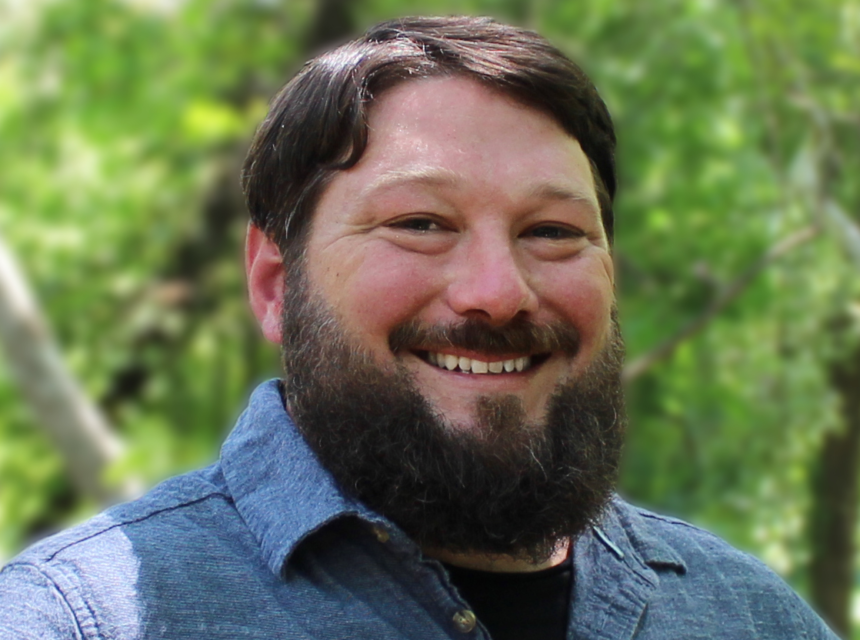
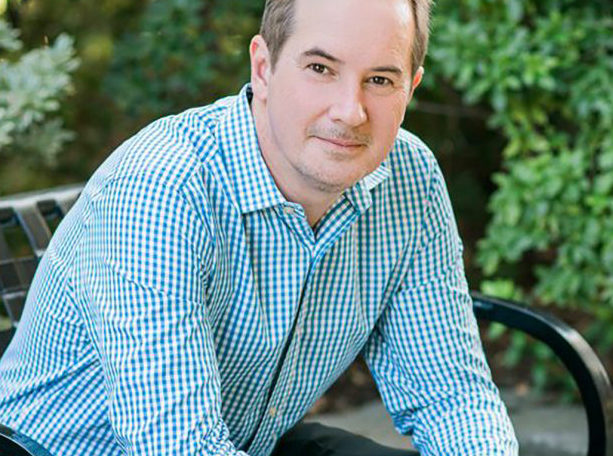
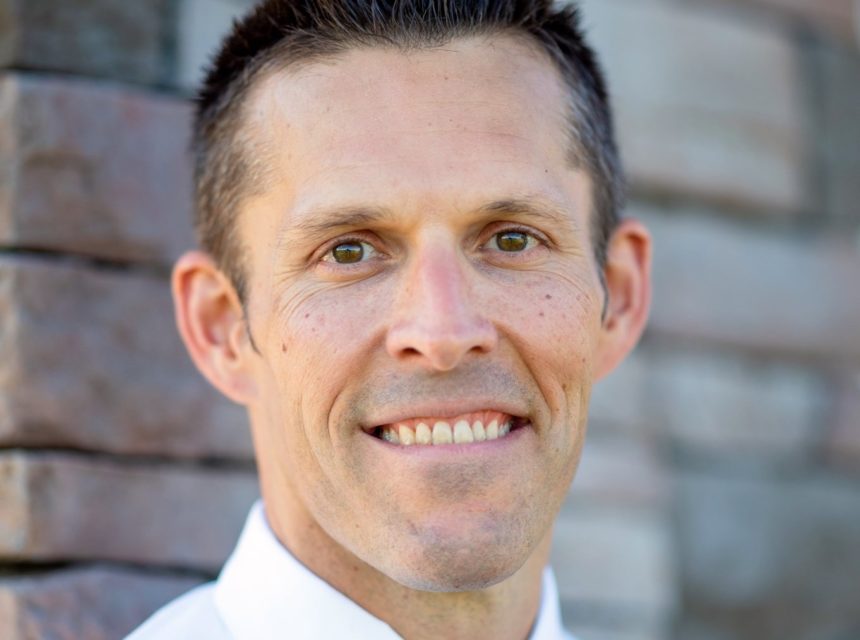
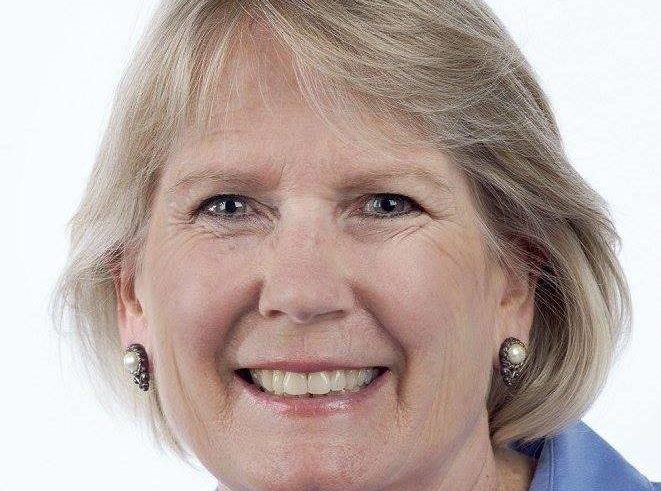
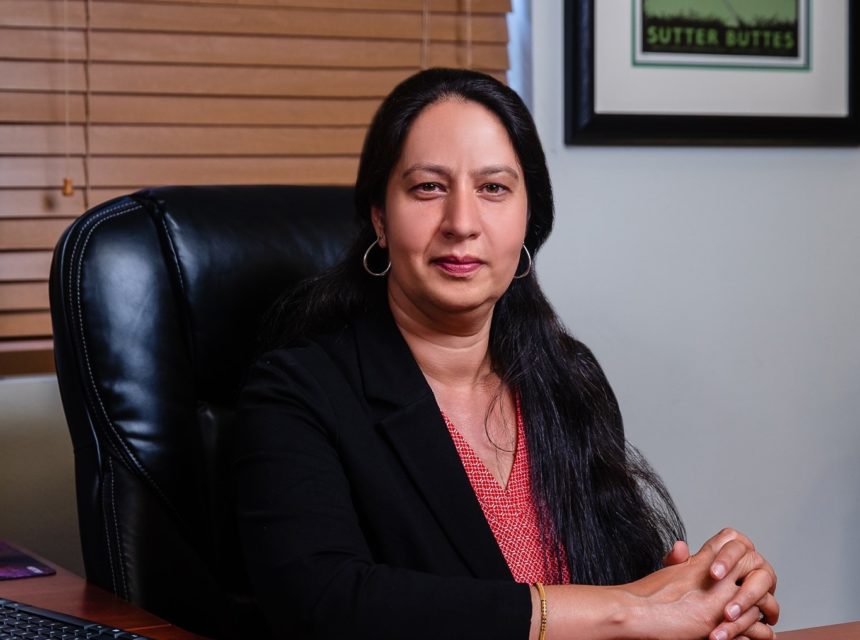
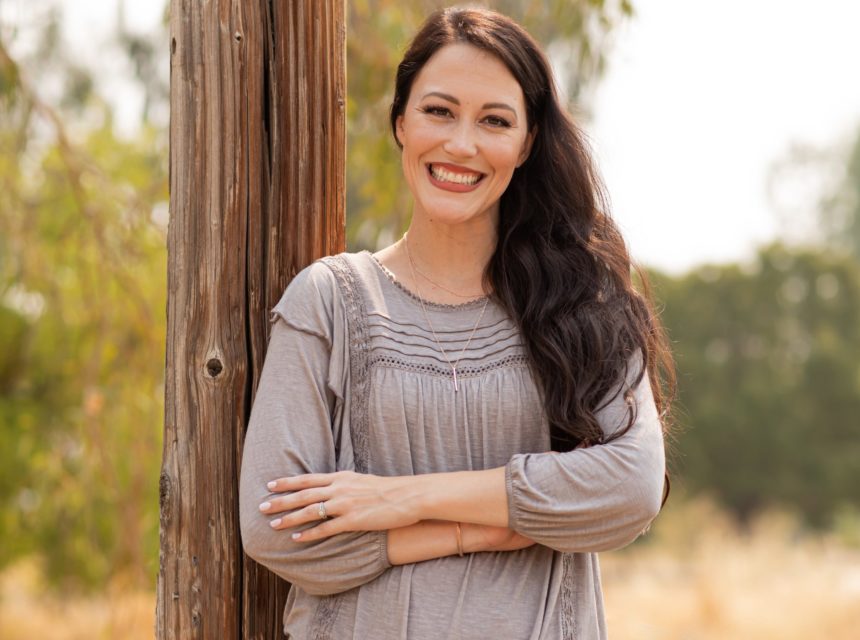
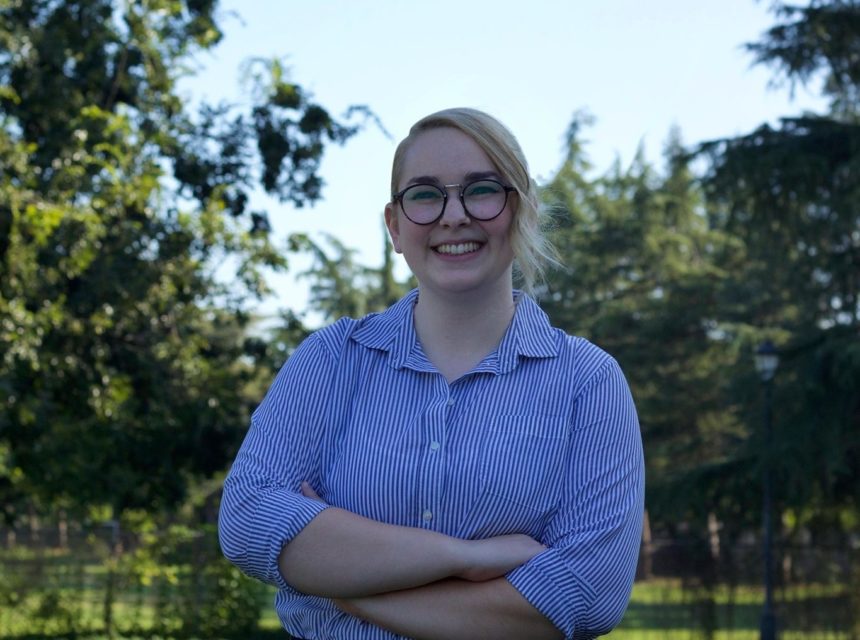
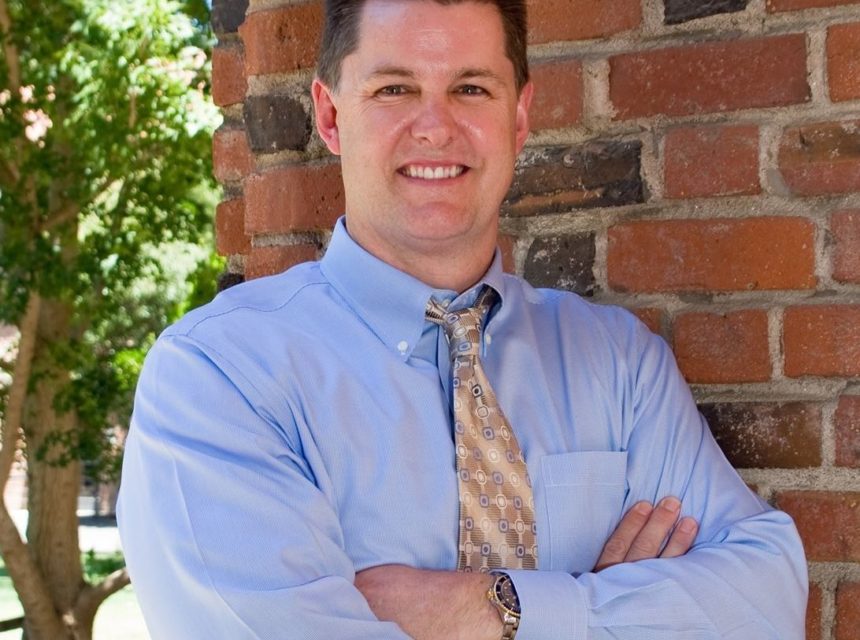
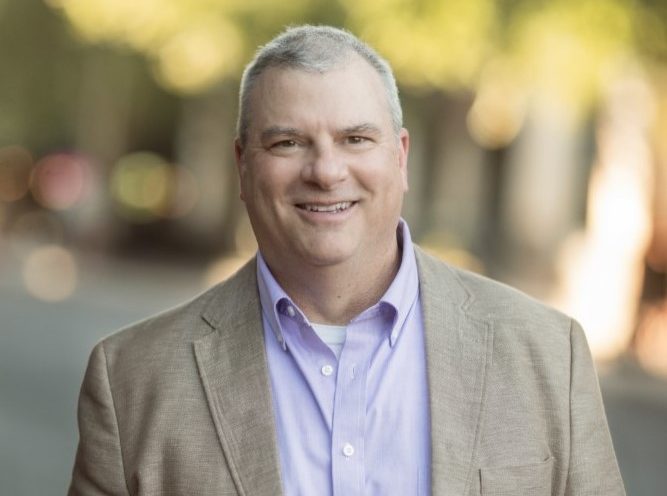
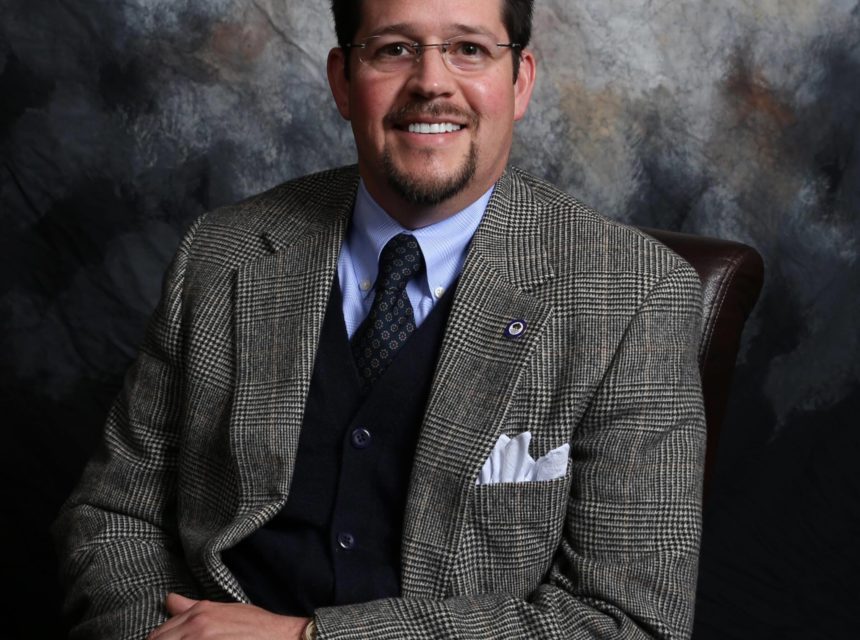
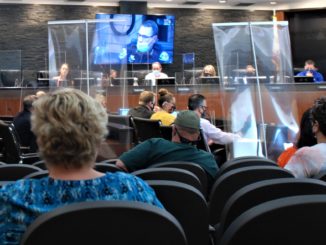
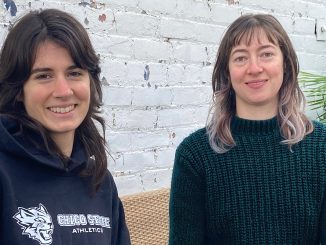
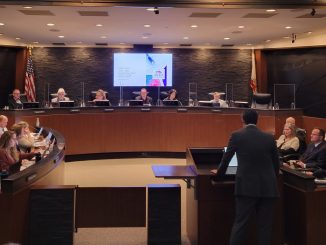
Be the first to comment